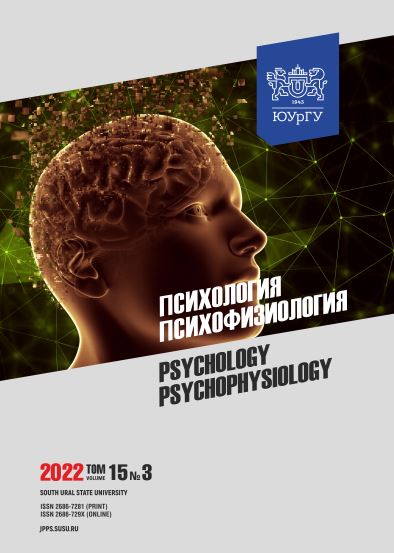Impact of the COVID-19 pandemic and related social restrictions, personal and social consequences on the level of psychological distress in pregnant women
Abstract
Introduction. Studies dedicated to psycho-emotional condition of pregnant women during the COVID-19 pandemic early period revealed an increase in levels of anxiety and depression, as well as emergence of specific fears associated with possible infection during pregnancy and potential impact of coronavirus infection on fetal health and birth outcome. Aims. To assess and compare impact of social restrictions, as well as personal and social consequences associated with the COVID-19 pandemic, on levels of psychological distress in pregnant women. Materials and methods. The study involved 204 women in late gestation admitted to the Dzerzhinsky Perinatal Center between December 2020 and February 2021. Clinical psychologists conducted an anonymous survey using a specially developed questionnaire to assess the impact of COVID-related social restrictions, personal and social consequences and then measure the level of psychological distress using the Kessler Psychological Distress Scale (K-10). Results. Based on retrospective data, moderate, high and very high levels of distress were observed in 25% of women one month before the survey and in 29% during the most severe period of the COVID-19 pandemic. Significantly more often increased levels of psychological distress was found among women whose friends or relatives suffered from severe COVID-19, who lost their friends or relatives or had more frequent family conflicts. Conclusion. The data obtained demonstrated the correlation between the level of psychological distress and severe course of COVID-19; the loss of friends or relatives; increased family conflict, income decrease or a rapid change of usual lifestyle during the pandemic, which emphasized the importance of a personalized approach to the assessment of the psychological status of pregnant women and the identification of factors that could negatively affect the course and outcome of pregnancy.
Downloads
References
2. Priputnevich T.V., Gordeev A.B., Lyubasovskaya L.A., Shabanova N.E. The novel coronavirus SARS-CoV-2 and pregnancy: literature review. Akusherstvo i Ginekologiya = Obstetrics and gynecology: news, opinions, training. 2020;5:6–12 (in Russ). DOI: https://doi.org/10.18565/aig.2020.5.6-12.
3. Ahmad M., Vismara L. The Psychological Impact of COVID-19 Pandemic on Womens Mental Health during Pregnancy: A Rapid Evidence Review. International Journal of Environmental Research and Public Health. 2021;18(13),7112. DOI: 10.3390/ijerph18137112.
4. Zilver, S., Broekman, B., Hendrix, Y. et al. Stress, anxiety, and depression in 1466 pregnant women during and before the COVID-19 pandemic: a Dutch cohort study. Journal of psychosomatic obstetrics and gynecology. 2021;42(2):108–114. DOI: https://doi.org/10.1080/0167482X.2021.1907338.
5. Farrell T., Reagu S., Mohan S. et al. The impact of the COVID-19 pandemic on the perinatal mental health of women. Journal of Perinatal Medicine. 2020;48(9):971–976. DOI: https://doi.org/10.1515/jpm-2020-0415.
6. Yang X., Song B., Wu A. et al. Social, cognitive, and ehealth mechanisms of COVID-19-related lockdown and mandatory quarantine that potentially affect the mental health of pregnant women in china: cross-sectional survey study. Journal of Medical Internet Research. 2021;23(1):e24495. DOI: https://doi.org/10.2196/24495.
7. Berthelot N., Lemieux R., Garon-Bissonnette J. et al. Uptrend in distress and psychiatric symptomatology in pregnant women during the coronavirus disease 2019 pandemic. Acta Obstetricia et Gynecologica Scandinavica. 2020;99(7):848–855. DOI: https://doi.org/10.1111/aogs.13925.
8. Nwafor J.I., Okedo-Alex I.N., Ikeotuonye A.C. Prevalence and predictors of depression, anxiety, and stress symptoms among pregnant women during COVID-19-related lockdown in Abakaliki, Nigeria. Malawi Medical Journal. 2021;33(1):54–58. DOI: https://doi.org/10.4314/mmj.v33i1.8.
9. Xu K., Zhang Y., Zhang Y. et al. Mental health among pregnant women under public health interventions during COVID-19 outbreak in Wuhan, China. Psychiatry Research. 2021;301:113977. DOI: https://doi.org/10.1016/j.psychres.2021.113977.
10. Uskenbaeva J.S., Akhmetova J.K. Impact of the COVID-19 pandemic on anxiety and depressive symptoms in pregnant women (results of an online survey). Vestnik Kazahskogo nacionalnogo medicinskogo universiteta = Bulletin of the Kazakh National Medical University. 2021;4:253–259. (in Russ.). DOI: https://doi.org/10.53065/kaznmu.2021.84.42.041
11. Sivolap Y.P. Postpartum depression: must be anticipated and not missed. Psihiatriya i psihofarmakoterapiya = Psychiatry and Psychopharmacotherapy. 2021;23(6): 23–27. (in Russ.).
12. Taubman-Ben-Ari O., Chasson M., Abu Sharkia S. et al. Distress and anxiety associated with COVID-19 among Jewish and Arab pregnant women in Israel. Journal of Reproductive and Infant Psychology. 2020;38(3):340–348. DOI: https://doi.org/10.1080/02646838.2020.1786037.
13. Tomfohr-Madsen L., Cameron E.E., Dunkel Schetter C. et al. Pregnancy anxiety and preterm birth: The moderating role of sleep. Health Psychology. 2019;38(11):1025–1035. DOI: https://doi.org/10.1037/hea0000792.
14. Katsura K.S., Khodasevich E.V. The level of personal and situational anxiety in pregnant women with various disorders of somatic, reproductive and social health. Tendentsii razvitiya nauki i obrazovaniya = Trends in development of science and education. 2020;68(2):31–34. (in Russ.).
15. Buinova J. Relationship between social support, psychological stress and pregnancy outcome. International Journal of Professional Science. 2019;11:52–61. (in Russ.).
16. Stolnicova I.I., Evstifeeva E.A., Filippchenkova S.I. et al. Quality of lifein patients with recurrent miscarriage. Psihologiya. Psihofiziologiya = Psychology. Psychophysiology. 2021;14(2):89–95. (in Russ.). DOI: https://doi.org/10.14529/jpps210209.
17. Andrews G., Slade T. Interpreting scores on the Kessler Psychological Distress Scale (K10). Australian and New Zealand Journal of Public Health. 2002;25(6):494–497. DOI: https://doi.org/10.1111/j.1467-842X.2001.tb00310.x.
18. Kessler R.C., Andrews G., Colpe L.J. et al. Short screening scales to monitor population prevalences and trends in non-specific psychological distress. Psychological Medicine. 2002;32:959–956. DOI: https://doi.org/10.1017/S0033291702006074.
19. Merson F., Newby J., Shires A. et al. The temporal stability of the Kessler Psychological Distress Scale. Australian Psychologist. 2021;56(1):1–8 DOI: https://doi.org/10.1080/00050067.2021.1893603.
References on translit
-Copyright (c) 2022 Psychology. Psychophysiology

This work is licensed under a Creative Commons Attribution-NonCommercial-NoDerivatives 4.0 International License.



